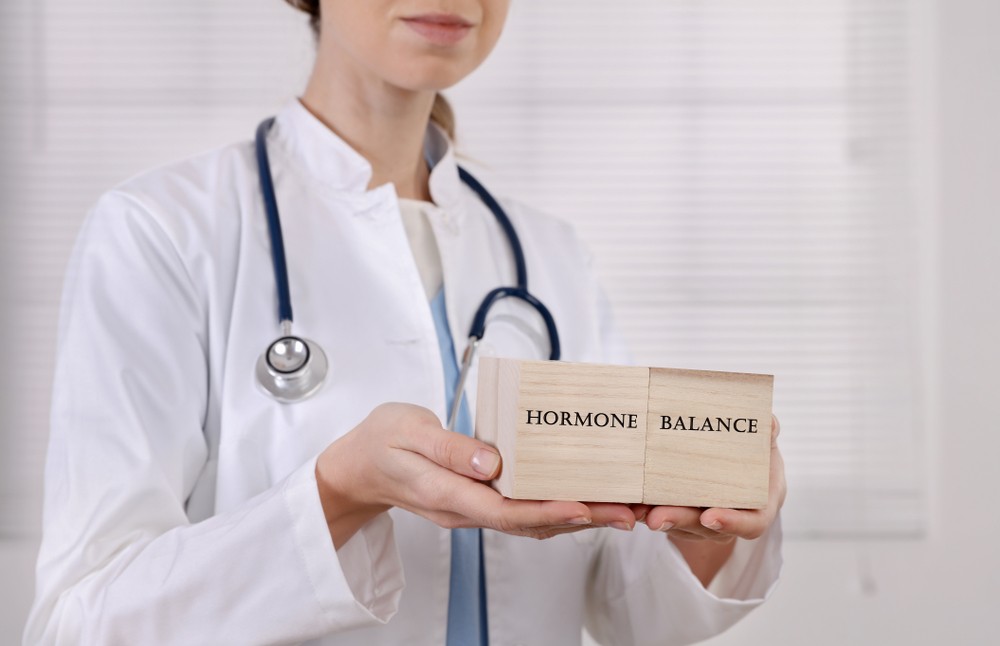
The role of hormonal imbalance on exercise and weight loss
Could a Hormonal Imbalance be Impacting Your Weight Loss?
At the cusp of the New Year, you maybe had determined that this was the year that you were going to recognize yourself in the mirror once again or become someone new entirely — through diet and exercise, you were going to make the change you’d been putting off for so long. There are certainly many Americans who’ve been doing their best to achieve their goals. They’ve been dedicated to diet and exercise; then, there are those who are doing precisely those things but still are hitting plateaus with their weight loss. It seems that no matter how many hours a week spent in the gym or salads consumed, it is having no impact on shedding those New Years’ pounds.
It doesn’t seem to matter that you’re working out six times a week, running every day, lifting weights — when you step on the scale, your weight loss progress remains stalled. Let’s face it; this stall is very discouraging and off-putting. What’s even the point of working so hard if it feels like your body’s actively working against you? Well, how about it’s time to make your body work for you?
The first step to making this happen is recognizing a hormonal imbalance. The human body is a very complex organization of interacting organ systems. At the heart of it is one of the most critical systems that instruct and dictate our biology: the endocrine system. This is a system that is responsible for regulating the release of varying hormones that act as signallers and instructions for how the rest of the organs interact and perform.
Make Your Body Work For You with Balanced Hormones
With a surface-level understanding of the endocrine system and hormones, we can now understand that when our bodies are hormonally out of balance, our other biological systems must compensate. This means that our biological systems, such as the digestive and skeletal-muscular, can become less responsive to the efforts we make when our hormones are out of balance.
Here’s a list of just a few essential hormones that contribute towards muscle growth and weight loss: testosterone, growth hormone, IGF, cortisol, epinephrine, and glucagon.
These hormones all play an important role in the body and exercise. When these hormones are deficient, our body fails to optimally use what’s available to help us lose the weight we’ve been working ever so hard on shedding. It’s at this deficiency where your body is working against you. Regardless of the hours you’re spending sweating and exerting, the matter of the fact is, your body is wasting the work you’re putting in. As a result, you may step on the scale or look in the mirror and feel that you need to work even harder, commit more time a week to the gym, etc. But the reality is by balancing these hormones through either hormone replacement therapy (HRT) or supplements that help boost hormone production; you can develop the lean muscle you’ve been striving for. Consequently, when those hormones are balanced, and you begin to develop more prominent and toned muscles, your body is now actively working for you towards your weight loss goals. This active work is what we call a boost in metabolism.
How Our Hormones Affect Our Metabolism
Metabolism is the amount of energy measured in calories that our bodies burn in a given day. Every single cell that comprises our bodies — from the cells in our hearts, brains, muscle, etc. — require fuel to function and survive. Metabolism is how these cells get that fuel: by converting food to energy. There are three main metabolic states: our basal metabolism, which is the energy used for bodily functions at rest. There’s the metabolic process associated with the energy it takes to digest our food, and our metabolism related to physical activity.
Naturally, when we’re doing physical activity, we’re putting more demand on our bodies. It requires more energy than usual to curl that dumbbell or to run that mile. While this is very much a boost in our metabolism that will undoubtedly require a large influx of calories to be burned, this isn’t sustainable past a certain threshold.
We simply require rest after extraneous activity. Our minds may be in the right place, but our bodies aren’t superhuman. Too much strain and exertion can leave your body worse for wear.
The matter of the fact is that our basal metabolism accounts for 60% – 80% of total energy expenditure. By simply adding more lean muscle mass to our frames, our basal metabolism must work harder since muscle is metabolically more demanding than fat. The more muscle mass you have, the greater your resting energy expenditure becomes, which equates to burning more calories (mainly from stores found in deposited fat) while “you do nothing but exist.” That’s what we call having your body work for you.
If weight loss remains your goal or resolution and it feels like you have stalled despite hours spent working out, then consider the possibility your hormones need correction before you can fully recognize the growth and progress you’re striving for. Vitality Aesthetic & Regenerative Medicine provides bioidentical hormones for treatment in men and women. Visit our blog page for helpful information on healthy living: https://varmedicine.com/blog/
Distribution Links +
- wrcbtv.com
- kake.com
- erienewsnow.com
- magic1065.com
- ktvn.com
- lubbocks969thebull.com
- fox21delmarva.com
- wboc.com
- wicz.com
- telemundolubbock.com
- tulsacw.com
- weny.com
- 1007thescore.com
- doublet973.com
- 937theeagle.com
- fox34.com
- lubbockcw.com
- mylubbocktv.com
- oldies977lubbock.com
- 1077yesfm.com
- rfdtv.com
- wfmj.com
- htv10.tv
- snntv.com
- central.newschannelnebraska.com
- metro.newschannelnebraska.com
- southeast.newschannelnebraska.com
- midplains.newschannelnebraska.com
- northeast.newschannelnebraska.com
- plattevalley.newschannelnebraska.com
- panhandle.newschannelnebraska.com
- rivercountry.newschannelnebraska.com
- wrde.com
- telemundonuevomexico.com
- wfxg.com



